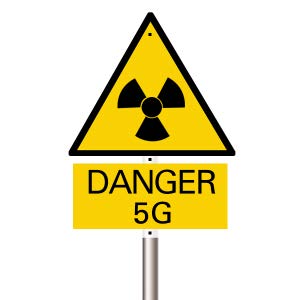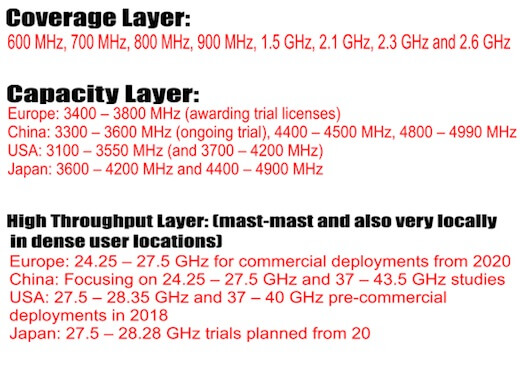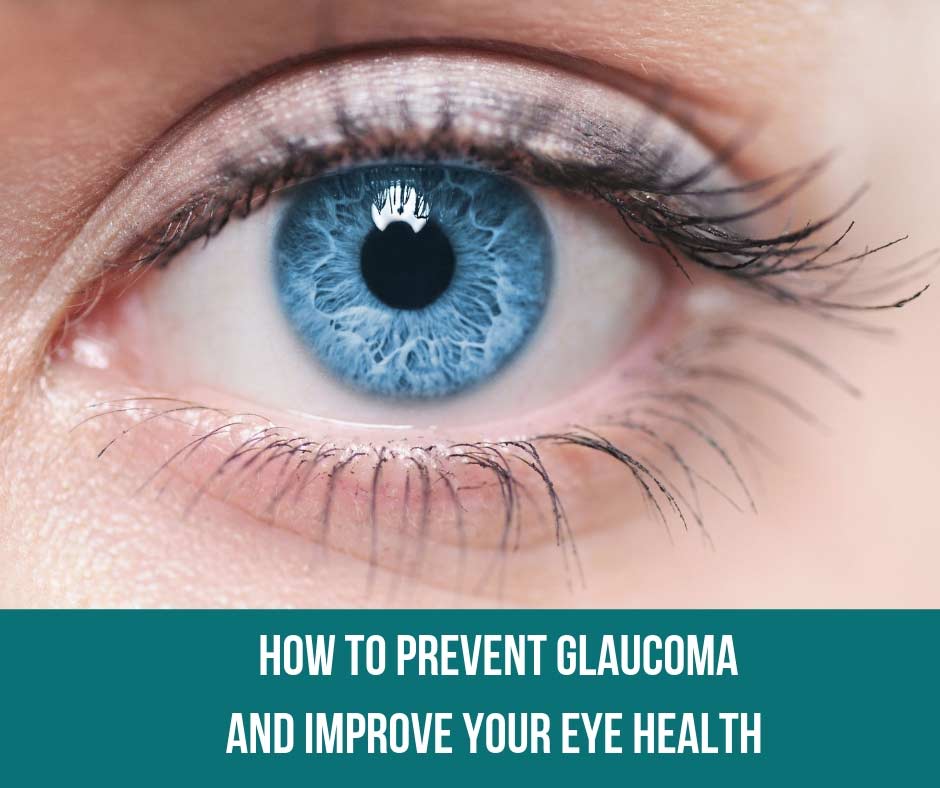The USA is currently leading the way on 5G. At the June 2016 press conference where the Federal Communications Commission’s (FCC) head Tom Wheeler announced the opening up of low, mid, and high spectrums. There was no mention of health effects whatsoever. But the dangers are real.
Thousands of studies link low-level wireless radiofrequency radiation exposures to a long list of adverse biological effects, including:
- DNA single and double-strand breaks
- oxidative damage
- disruption of cell metabolism
- increased blood-brain barrier permeability
- melatonin reduction
- disruption to brain glucose metabolism
- generation of stress proteins
Let’s not also forget that in 2011 the World Health Organization (WHO) classified radiofrequency radiation as a possible 2B carcinogen.
More recently the $25 million National Toxicology Program concluded that radiofrequency radiation of the type currently used by cell phones can cause cancer.
But where does 5G fit into all this? Given that 5G is set to utilize frequencies above and below existing frequency bands 5G sits in the middle of all this. But the tendency (it varies from country to country) is for 5G to utilize the higher frequency bands. Which brings it’s own particular concerns. Here is my review of the studies done to date – 11 reasons to be concerned.
1 – A DENSER SOUP OF ELECTROSMOG
We’re going to be bombarded by really high frequencies at low, short-range intensities creating a yet more complicated denser soup of electrosmog – as this diagram shows.

To work with the higher range MMW in 5G, the antennas required are smaller. Some experts are talking about as small as 3mm by 3mm. The low intensity is for efficiency and to deal with signal disruption from natural and man-made obstacles.
2 – EFFECTS ON THE SKIN
The biggest concern is how these new wavelengths will affect the skin. The human body has between two million to four million sweat ducts. Dr. Ben-Ishai of Hebrew University, Israel explains that our sweat ducts act like “an array of helical antennas when exposed to these wavelengths,” meaning that we become more conductive. A recent New York study that experimented with 60GHz waves stated that “the analyses of penetration depth show that more than 90% of the transmitted power is absorbed in the epidermis and dermis layer.”
The effects of MMWs as studied by Dr. Yael Stein of Hebrew University is said to also cause humans physical pain as our nociceptors flare up in recognition of the wave as damaging stimuli. So we’re looking at possibilities of many skin diseases and cancer as well as physical pain to our skin.
3 – EFFECTS ON THE EYES
A 1994 study found that low-level millimeter microwave radiation produced lens opacity in rats, which is linked to the production of cataracts.
An experiment conducted by the Medical Research Institute of Kanazawa Medical University found that 60GHz “millimeter-wave antennas can cause thermal injuries of varying types of levels. The thermal effects induced by millimeter waves can apparently penetrate below the surface of the eye.”
A 2003 Chinese study has also found damage to the lens epithelial cells of rabbits after 8 hours of exposure to microwave radiation and a 2009 study conducted by the College of Physicians and Surgeons in Pakistan conclude that EMFs emitted by a mobile phone cause derangement of chicken embryo retinal differentiation.
4 – EFFECTS ON THE HEART
A 1992 Russian study found that frequencies in the range 53-78GHz (that which 5G proposes to use) impacted the heart rate variability (an indicator of stress) in rats. Another Russian study on frogs who’s skin was exposed to MMWs found heart rate changes (arrhythmias).
5 – IMMUNE SYSTEM EFFECTS
A 2002 Russian study examined the effects of 42HGz microwave radiation exposure on the blood of healthy mice. It was concluded that “the whole-body exposure of healthy mice to low-intensity EHF EMR has a profound effect on the indices of nonspecific immunity”.
6 – EFFECTS ON CELL GROWTH RATES
A 2016 Armenian study observed MMWs at low intensity, mirroring the future environment brought about by 5G. Their study conducted on E-coli and other bacteria stated that the waves had depressed their growth as well as “changing properties and activity” of the cells. The concern is that it would do the same to human cells.
7 – EFFECTS ON BACTERIA RESISTANCE
The very same Armenian study also suggested that MMWs effects are mainly on water, cell plasma membrane, and genome too. They had found that MMW’s interaction with bacteria altered their sensitivity to “different biologically active chemicals, including antibiotics.” More specifically, the combination of MMW and antibiotics showed that it may be leading to antibiotic resistance in bacteria.
This groundbreaking finding could have a magnum effect on the health of human beings as the bandwidth is rolled out nationwide. The concern is that we develop a lower resistance to bacteria as our cells become more vulnerable – and we become more vulnerable.
8 – EFFECTS ON PLANT HEALTH
 One of the features of 5G is that the MMW is particularly susceptible to being absorbed by plants and rain. Humans and animals alike consume plants as a food source. The effects MMW has on plants could leave us with food that’s not safe to consume.
One of the features of 5G is that the MMW is particularly susceptible to being absorbed by plants and rain. Humans and animals alike consume plants as a food source. The effects MMW has on plants could leave us with food that’s not safe to consume.
Think GMOs on steroids. The water that falls from the sky onto these plants will also be irradiated. A 2010 study on aspen seedlings showed that the exposure to radio frequencies led to the leaves showing necrosis symptoms.
Another Armenian study found that MMWs of low intensity “invoke(s) peroxidase isoenzyme spectrum changes of wheat shoots.” Peroxidase is a stress protein existing in plants. Indications are that 5G will be particularly harmful to plants – perhaps more so than to humans.
9 – EFFECTS ON THE ATMOSPHERE AND DEPLETION OF FOSSIL FUELS
Implementation of the 5G global wireless network requires the launching of rockets to deploy satellites for 5G. These satellites have a short lifespan which would require a lot more deployment than what we’re currently seeing. A new type of hydrocarbon rocket engine expected to power a fleet of suborbital rockets would emit black carbon which “could cause potentially significant changes in the global atmospheric circulation and distributions of ozone and temperature” according to a 2010 Californian study. Solid-state rocket exhaust contains chlorine which also destroys the ozone.
The effects on the ozone are thought to be worse than current-day CFC exposure.
Google’s Project Loon is said to bring the Internet to rural and hard-to-access areas by using helium balloons. But these balloons only have a 10-month lifespan. We’re looking at a lot of helium being used here, more than what we can possibly have on Earth?
10 – DISRUPTION OF THE NATURAL ECOSYSTEM
Since the year 2000, there have been reports of birds abandoning their nests as well as health issues like “plumage deterioration, locomotion problems, reduced survivorship, and death,” says researcher Alfonso Balmori. Bird species that are affected by these low levels, non-ionizing microwave radiation are the House Sparrows, Rock Doves, White Storks, Collared Doves, and Magpies, among others.
But it’s not just the birds. The declining bee population is also said to be linked to this non-ionizing EMF radiation. It reduces the egg-laying abilities of the queen leading to a decline in colony strength.
11 – Most 5G Radiation Studies Mis-Leading
5G will use pulsed millimeter waves to carry information. But as Dr. Joel Moskowitz points out, most 5G studies are misleading because they do not pulse the waves. This is important because research on microwaves already tells us how pulsed waves have more profound biological effects on our bodies compared to non-pulsed waves. Previous studies, for instance, show how pulse rates of the frequencies led to gene toxicity and DNA strand breaks.





Hello Robert
I missed the live webinar recently about ‘Protect your family from Harmful Radiation’
Is there going to be a replay?
Many thanks
Val Horrell NZ
Hi Val, yes you can view the ‘Protect Your Family from Harmful Radiation’ webinar here: https://naturallyhealthynews.com/webinar/ Just scroll down the page to the Earlier Webinars section and you will find it listed under 2021/16th November – Quantogram – Protect Your Family From Harmful Radiation. Kind Regards.